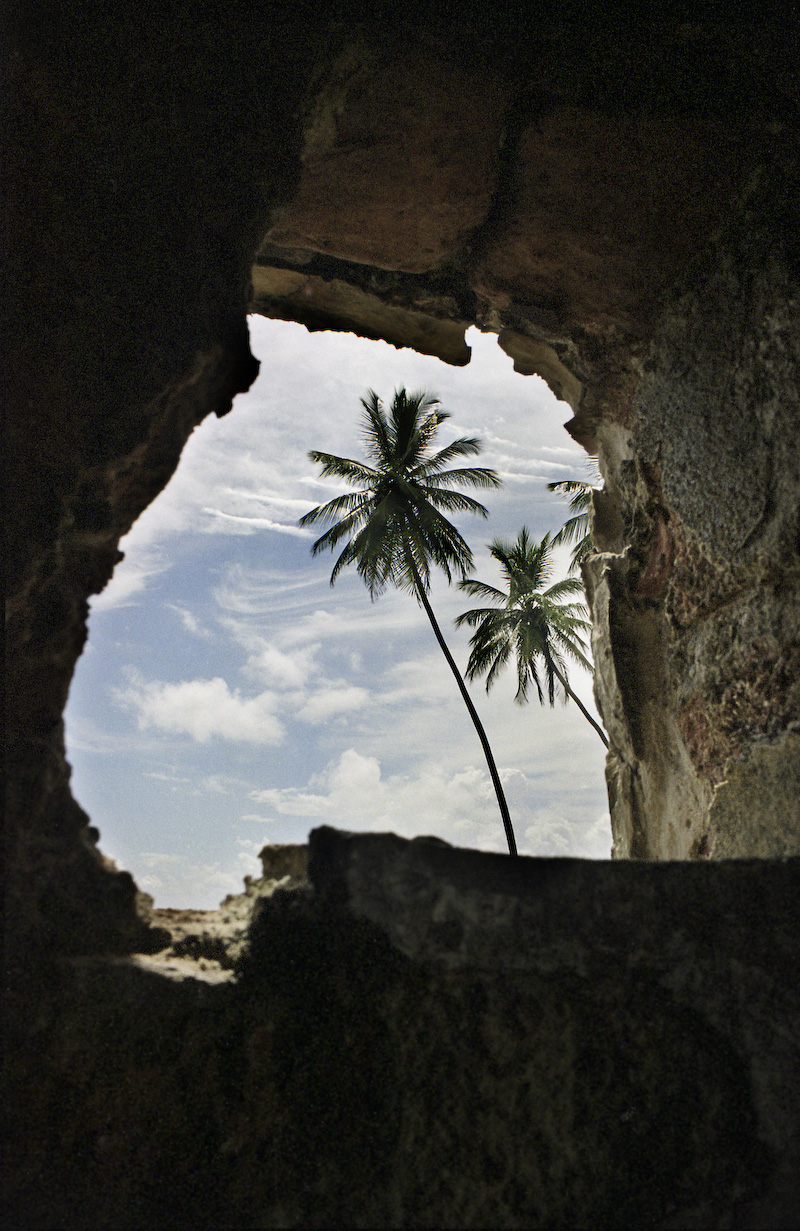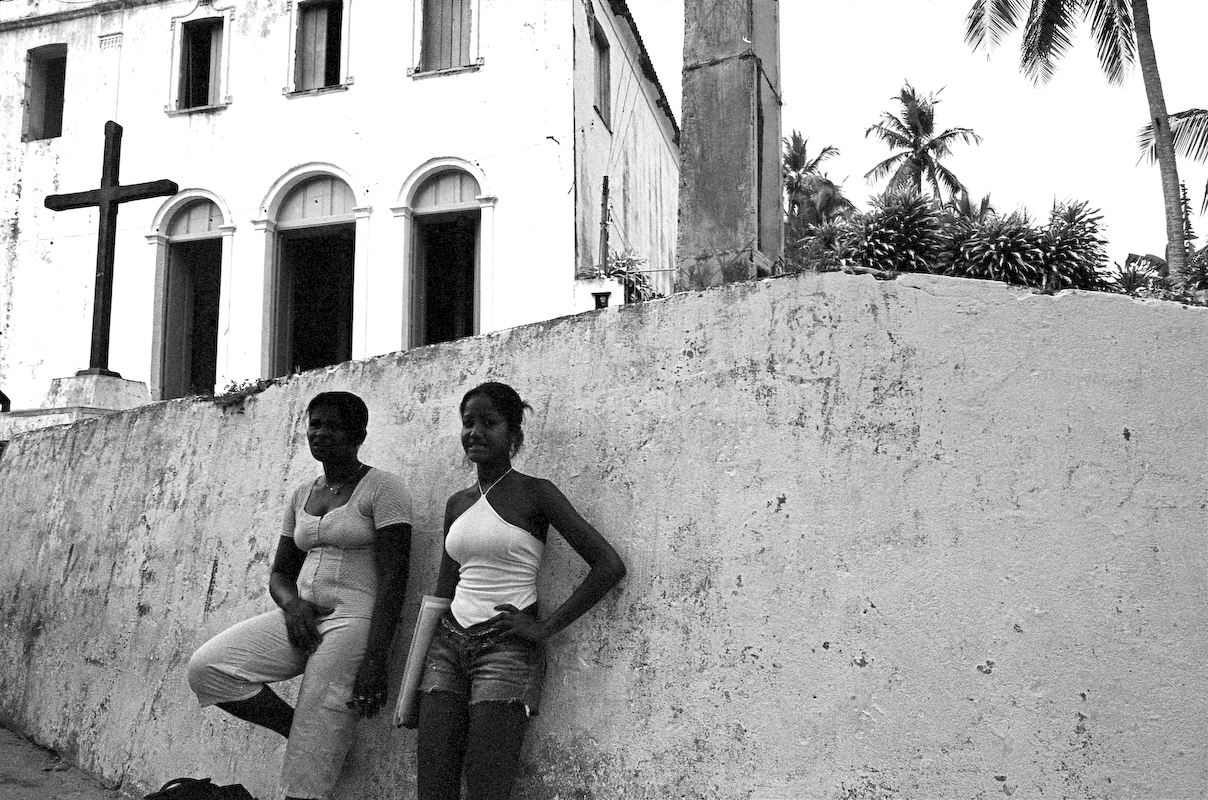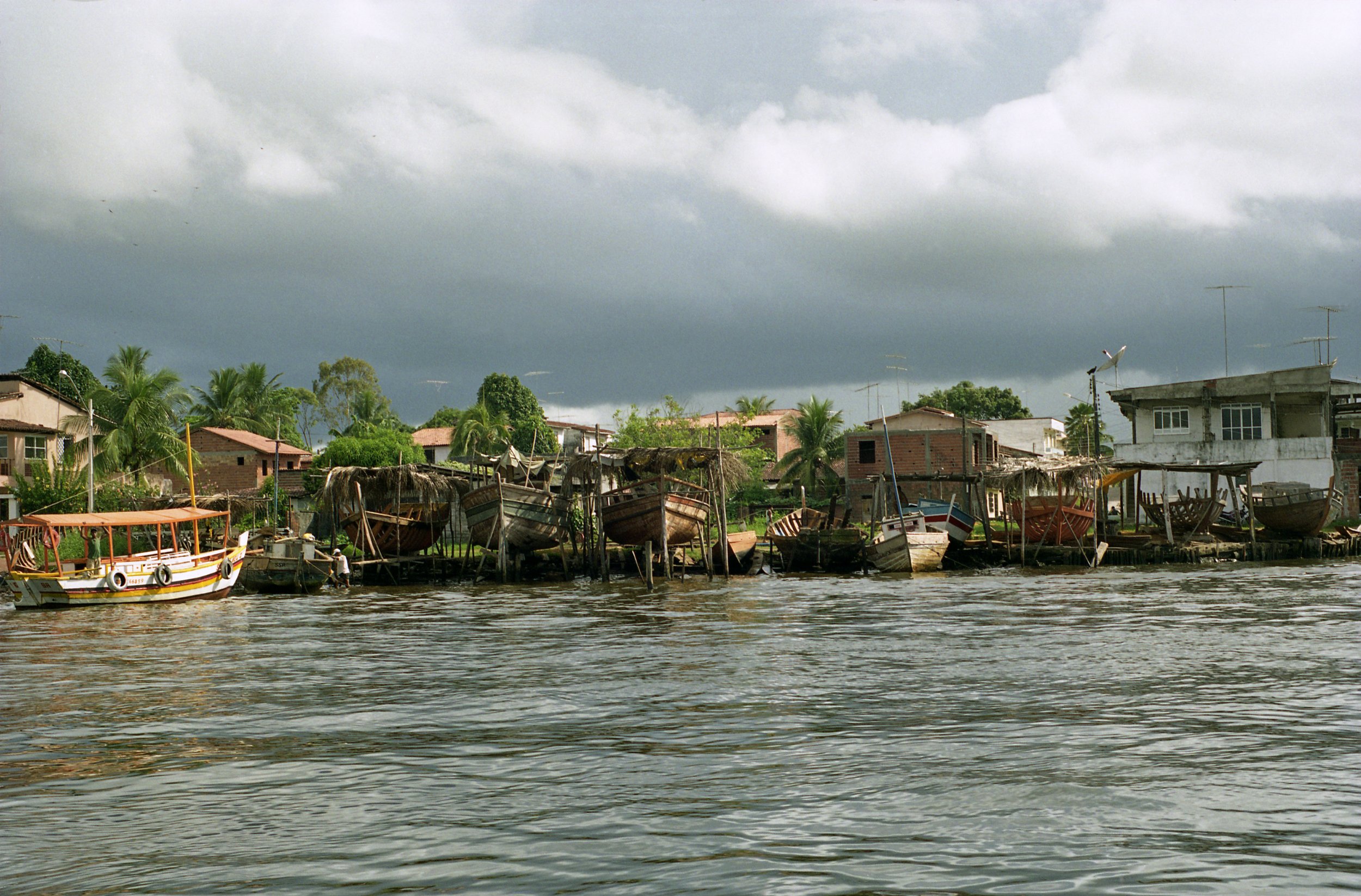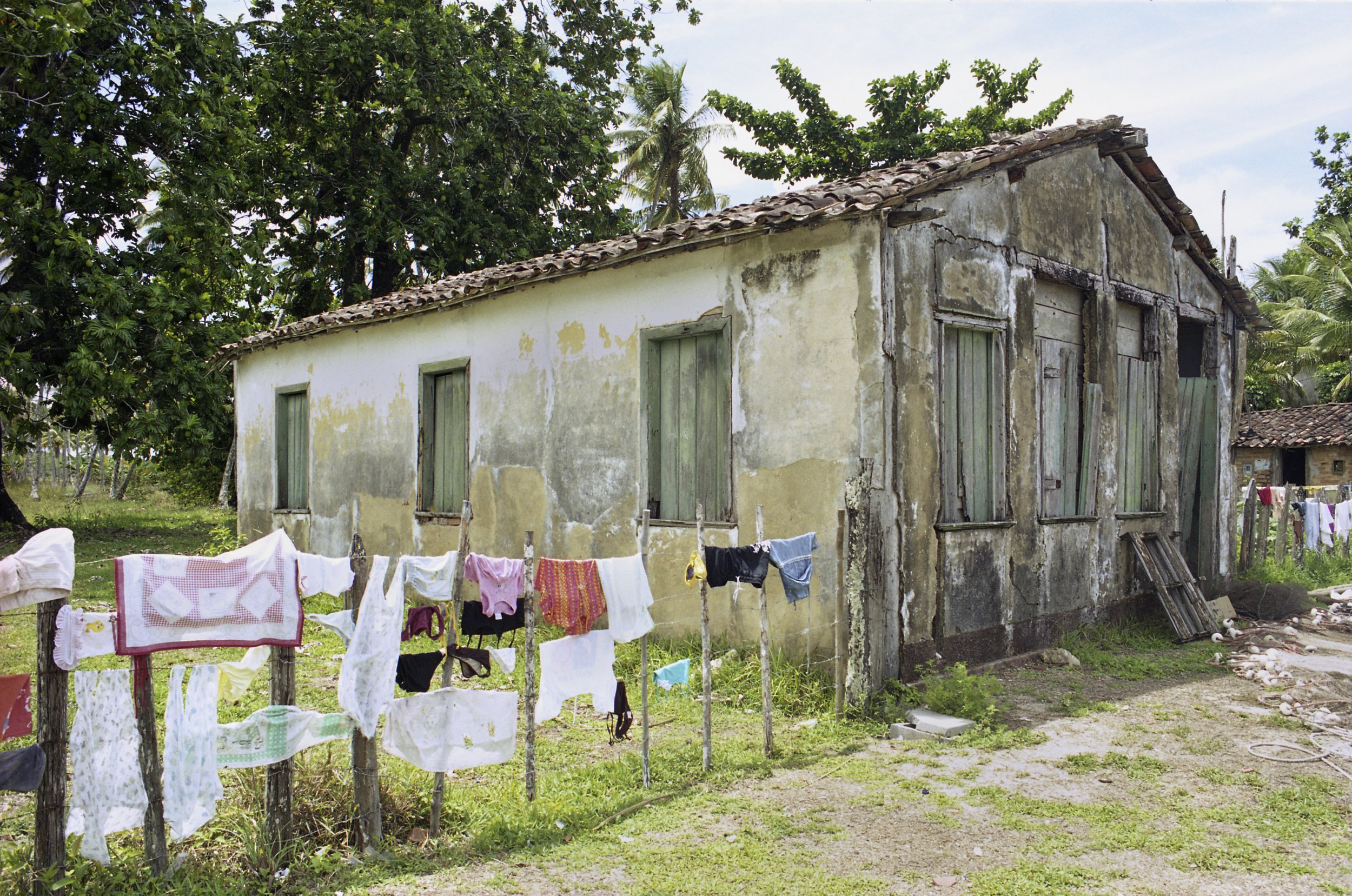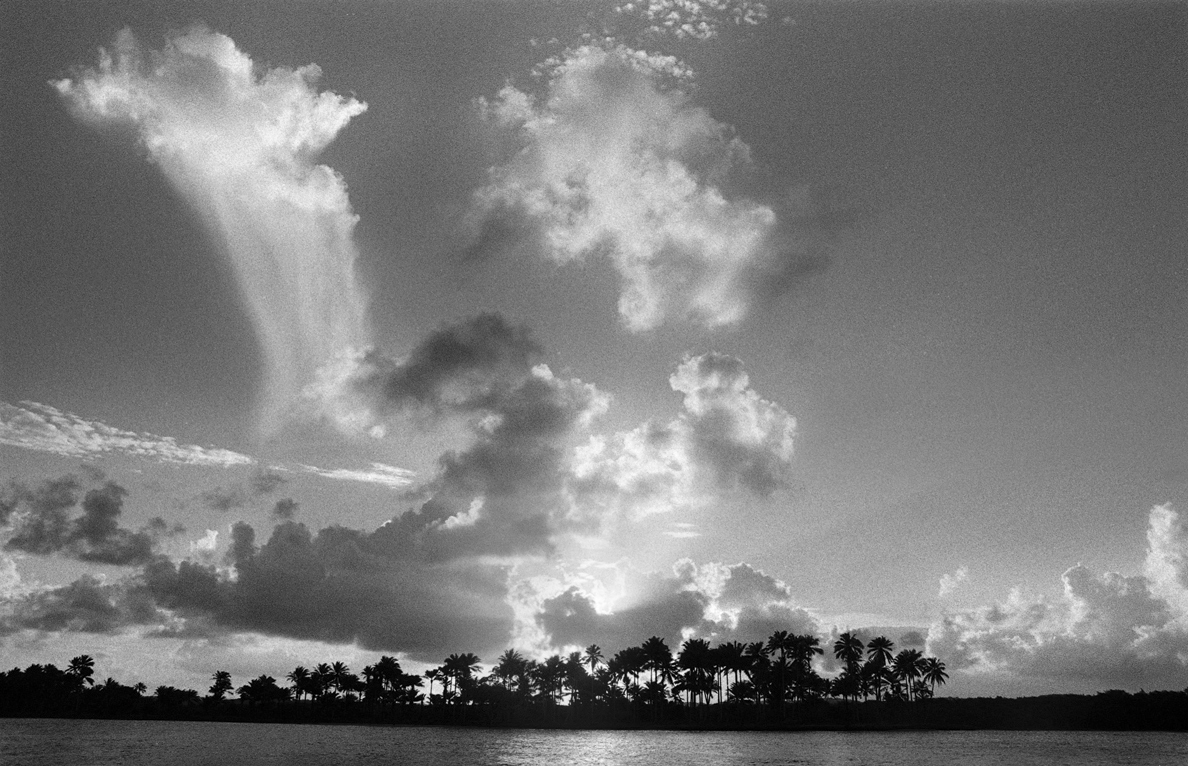STRANDED
The residents on the island of Tinhare in northeastern Brazil gaze at the sea in a manner that only those who depend on its generosity do. The complete absence of cars preserves a singular architecture and transports those who pass by the island to a time when women balanced wraps of tidbits over their heads, men carried heavy volumes through the streets, cars were pulled by animals and parasols were used for long walks.
They live as time, stranded.
Analog photo essay executed on 35mm film.









